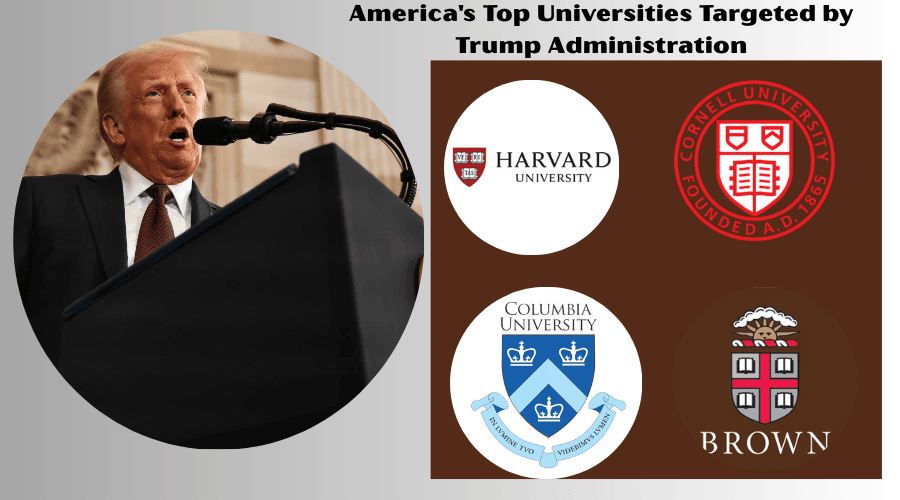The Trump administration’s decision to freeze billions in federal funding to several elite U.S. universities has ignited a national debate over academic freedom, government overreach, and the future of higher education in America.
Harvard University is at the center of this growing conflict. On April 14, the Trump administration announced a freeze of over $2.2 billion in grants and $60 million in contracts to the Ivy League institution after it refused to meet a list of federal demands.
The government had called for sweeping reforms, including external audits, curbing faculty influence, and reporting misconduct by international students. Harvard President Alan M. Garber rejected the demands, stating the university “will not surrender its independence or relinquish its constitutional rights.”
Targeted Universities
Other prestigious institutions are also under scrutiny. Columbia University accepted government conditions after facing pressure over its response to protests and alleged antisemitism, agreeing to increased oversight of academic departments and stricter protest policies.
In contrast, Brown, Cornell, Northwestern, and the University of Pennsylvania are facing similar funding threats—ranging from hundreds of millions to over a billion dollars—despite varying responses to federal demands.
The affected funding spans critical fields like quantum computing, medical research, public health, and national security studies. For instance, the University of Pennsylvania lost access to $175 million in federal support tied to past controversies around gender inclusion in sports.
Related post: Boise State Forced to End Key Program After Federal Education Funding Slashed
Why They Are Being Targeted
The administration says these actions are part of a broader effort to combat campus antisemitism and restore ideological balance in universities it claims have become too politicized. Officials argue that many institutions have failed to enforce civil rights protections and have allowed anti-Israel protests and bias to flourish unchecked.
Critics, however, accuse the Trump administration of politicizing education and undermining academic independence. They argue that funding suspensions—especially without clear standards—threaten scientific research, student support, and institutional autonomy.
Former President Trump has also escalated the fight rhetorically, suggesting Harvard should lose its tax-exempt status, accusing it of acting like a political entity rather than a public-serving institution. “Tax Exempt Status is totally contingent on acting in the PUBLIC INTEREST,” he posted on Truth Social.
The broader backdrop includes conservative discontent over diversity, equity, and inclusion (DEI) programs, the political leanings of faculty, and perceived ideological uniformity on campuses. Some analysts argue the crackdown is rooted in a longstanding effort to push universities away from progressive agendas and realign them with what the administration calls “merit-based” and “job-relevant” education.

